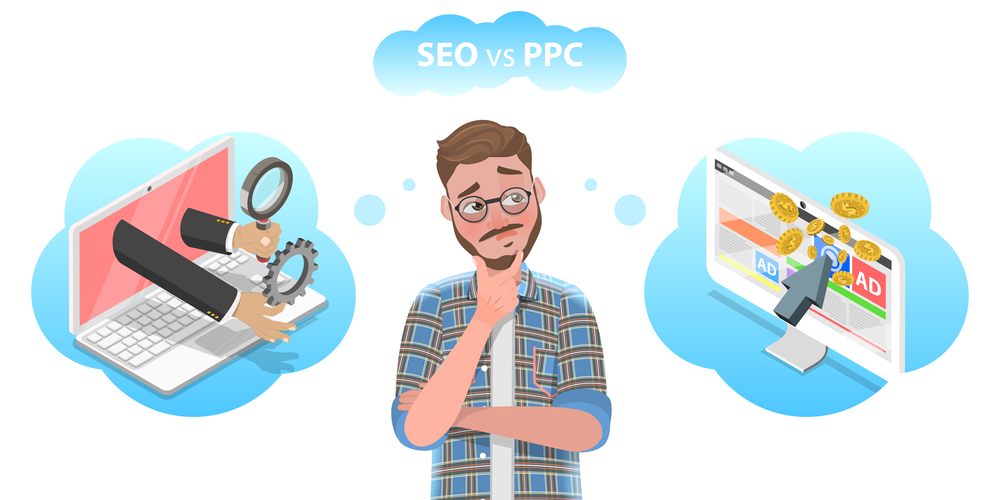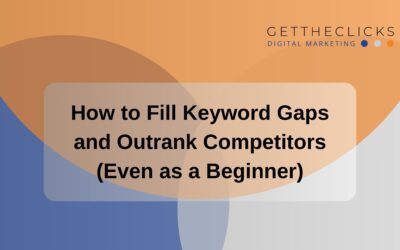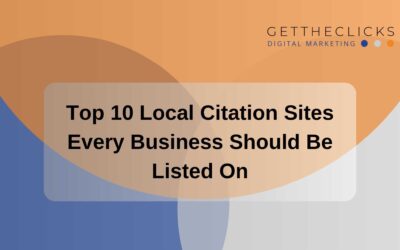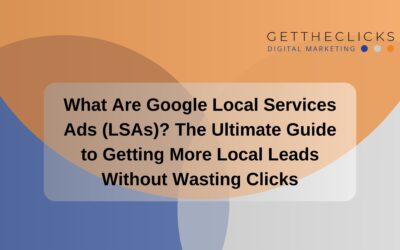The SEO vs PPC debate is an age-old one in digital marketing. Marketers have argued over whether SEO is better or if PPC is from the very beginning. Some marketers argue that SEO is better because it encourages organic traffic whereas others will claim PPC is best because it guarantees you a top spot in the search engines as long as you pay.
While some marketers may have very strong opinions on either SEO or PPC, the truth is that both SEO and Pay Per Click Marketing have their place in digital marketing for a reason. In certain instances, PPC is a better option whereas SEO should be chosen in others.
Since SEO and PPC serve different marketing purposes and are best used in different circumstances, it’s crucial to understand your marketing goals and create the right campaign strategy. Without either, you’re less likely to choose the right method, and your marketing campaign can quickly get muddled.
It is entirely possible to use both SEO and PPC together to enhance your marketing campaign, but if you can only choose one, you should first understand the differences between the two and their pros and cons.
Differences: SEO Versus PPC
In digital marketing, there are many different ways you can strategize. While you can make either SEO or PPC work for any campaign strategy, it’s better to choose the one that fits your campaign rather than make your campaign fit one of them.
The most straightforward difference is that SEO drives organic traffic while PPC is paid traffic. SEO is free, but with PPC, you’ll pay for each visitor that clicks on your website’s link.
Here’s a deeper look at the differences between them:
Search Engine Optimization: Drive Organic Traffic
As mentioned above, SEO is free. You may decide to hire someone to take care of your SEO, but getting traffic from organic search results is free.
Content
Content is a significant part of search engine optimization since that is often where keywords are embedded. Optimized content is used to grab the attention of search engines and convince them that your website has important and relevant information to whatever a user has searched.
Content that is SEO friendly is easy to read, clear, and contains relevant information. You can’t stuff keywords into an article and assume it’s going to be SEO friendly. In fact, this is called keyword stuffing and can cause your website to get penalized.
Keywords
SEO focuses on drawing in organic (free) traffic through meaningful keywords and helpful content. It’s a key player in how high up your website is ranked in organic search results which is why it’s so important for your website. If your content isn’t SEO friendly, you won’t rank within the first few results of Google search.
Results Tend to Be Long Lasting
Fortunately, SEO tends to be a longer-lasting solution. While search engine algorithms may change and you may need to update your site routinely, it’s unlikely that you have to start from scratch entirely or have your website disappear from organic search results altogether. In contrast, with paid search advertising, your website will cease to be listed at the top the minute you stop paying.
Better CTR on Search Engines
You may not be aware that your CTR (Click Through Rate) has an effect on your rank in organic search results. If many visitors leave your site shortly after clicking on your link, it has a negative impact on your ranking. Whether these visitors don’t find the information they need or your website was mistakenly displayed for a result, it harms your search engine rankings. This is why you want relevant and targeted visitors to your website; visitors who will stay on and engage.
You’re more likely to get targeted search engine traffic from organic search because users are specifically searching for your relevant keywords. If you run the wrong paid search ads and entice the wrong audience who will promptly click away, it will reflect poorly on your website.
Increased Clicks
Studies have shown that users are more likely to click on organic results even though they may have to scroll a bit. While PPC ads show up first, a high percentage of internet users will avoid them in favor of the organic results below. This is great news for an SEO campaign as you’ll benefit from higher rankings and better visibility in search results.
There are some drawbacks to SEO, though, so some marketers will recommend incorporating it with another strategy for it to be more effective.
Constantly Changing
A common difficulty to SEO is that the rules for organic search are constantly changing. This means that you have to stay in the loop or risk accidentally penalizing your website. You’ll also need to continue optimizing and updating your website. It’d be wrong to see it as a one-off effort; instead, it is a consistent optimization journey.
Slower Results
SEO is not a fast solution. It takes time before you’ll start seeing the results of an SEO campaign, sometimes several months. You can’t rewrite your website’s content to be SEO-friendly and immediately see the results. While you might start seeing the impact within a week or two, this isn’t guaranteed, and you should be wary of any company that says otherwise.
Time Consuming
Since SEO rules and regulations are being changed all the time, SEO is not a one-and-done solution. You’ll need to set up a schedule and regularly update your website. It’s time-consuming work, and there is no end. You’ll never be 100% optimized, but with every update you make, your website should rank higher, and you’ll see better results.
PPC Ads: Targeted Advertising
PPC advertising allows you to have direct control over who sees your ads. You can even create multiple ad copies that appear for different audiences in order to better attract and increase a specific target audience.
With PPC campaigns, you pay to have your ad appear at the top of search engine results. This means that unlike SEO, PPC will have a direct cost. Every time a user clicks on your ad, you’ll pay. Even if they don’t end up following through with your call to action or they click on the ad by mistake, you’ll still pay for their visit.
Just like with SEO, there are some unique pros and cons to PPC that your business may greatly benefit from when used correctly.
Targeted
PPC ads are extremely targeted. You can restrict your ads based on both positive and negative keywords, demographics, interests, time of day, time of the week, and device. You can restrict your ads by language and location if you’re running an international PPC campaign.
With PPC, you can be as specific or broad as you want. Your website and business is immediately made visible to those most likely to become converts. This will have a direct impact on and increase your brand visibility.
Quick Results
You won’t need to wait weeks before the results of your PPC become visible. PPC campaigns are quick to build and can be launched shortly after for almost immediate results, whereas SEO campaigns can take months and still not show results. In most cases, PPC campaigns will start providing results overnight, which can help you further strategize other marketing campaigns.
Featured at the Top
PPC is a way to guarantee your website appears at the top of search results. Your ad will be in one of the first few places on organic search results, showing up even before the organic results that are displayed below. This can be a huge advantage. Even if users scroll past your ad, they’re made aware of your brand and may end up going back or clicking on your website later.
There are downsides to PPC, however, as with every marketing tactic.
Varying Costs
The cost of a keyword when you first launch your PPC campaign isn’t guaranteed to stay the same. To trigger your ad for the desired keyword, you’ll have to battle other companies and will often end up having to increase your bid. If the price to bid on a keyword becomes too high, you’ll have to drop it. This is why having a sound paid search marketing strategy is crucial so you know what keywords to target and have done your research.
Click Fraud
Click Fraud is where competitors use software to rack up clicks for your ad. By simulating human clicks through different IP addresses, competitors can have a huge impact on your campaign results. You’ll pay for each of their clicks even though it’s done through damaging software or AI and not a real customer.
No Automatic Sales
Just because someone clicks on your ad does not mean they’ll increase your sales. You may very well end up paying for a visitor that doesn’t turn into a convert. For some businesses, this is alright as you have plenty of sales to keep your afloat. However, you need to have a strategy in place to turn your visits into sales, or you’ll be draining your budget before you know it.
When to Use SEO or PPC
Since SEO and PPC have different advantages and serve different functions, there are times when one will be more useful than another.
For small businesses that need to increase brand awareness quickly, PPC is a reliable option. You’ll want to set a budget and be sure you fully understand how to run a PPC campaign, but this will have the fastest results.
For businesses that don’t need a quick fix, SEO is a good way to improve your search engine rankings long term. You’ll need to give it some time before you see results, but SEO is a longer lasting solution that can be used in the background or alongside other campaigns.
To get the most out of a PPC campaign, incorporate SEO tactics. Together, SEO and PPC create powerful solutions and can lead to much more effective marketing campaigns.
Final Verdict
Both SEO and PPC are worth considering for your business. If you have a flexible budget, there’s no question that using them both together is the best choice to make. They simply work best when used together and can give you the best results. In the case where you can only use one or the other, consider how quickly you need results and how much you can spend. With those factors in mind, you’ll be able to determine which method is better for your business.

Stephan Boehringer is the CEO of Get The Clicks, a web marketing company. Stephan has over 20 years of experience in the field of web marketing, and has been a speaker and consultant for many years. Stephan is passionate about web marketing and helping their clients be the best they can be.
Stephan Boehringer graduated from the University of Florida with a Bachelor of Science in Business, Management, Marketing, and Related Support Services.




